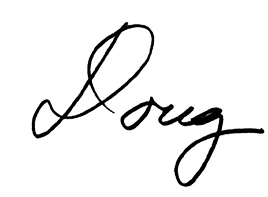
December 7, 2017
I love gentle walking meditation in the woods and fields along the American River near our home. I softly radiate equanimity and observe the mind without trying to control its thoughts. After more than an hour of this the other day, I was heading home along the levy. I noticed my head and eyes turning gently toward a sound on the left or a bird on the right. I decided to see if I could notice the intention to move my head or eyes before they actually moved. Mostly we assume that we create the intention first then act on it. So I wanted to see if this was true.
That may sound like a strange project. But I had read some brain research that suggests intentions begin without our knowing. Using an fMRI live brain scan, scientists can track how an intention arises and sends a signal to the lower brain motor centers. The lower brain may then relay the signal to the legs to take the next step or to the neck to turn the head or to eyes to move. As the signal is sent to the lower brain, it’s also sent to the neo-cortex — the massive grey matter over the front and top of the brain. This allows us to become aware of our experience. But that region is so large and complex that it takes a split second before we know what we’re experiencing.
Because of that time delay, the intention to move my head reaches the motor centers at about the same time I become aware of the intention. In other words, the intention is moving through the neural network before I am aware it’s there. I can block the signal from leaving the motor cortex. But the intention is literally there before I know it’s there.
A common example of this is being invited on an unwelcomed date. Someone says, “There’s this great movie. Would you like see it with me on Saturday?” Truthfully, I have no desire to see that movie or spend the afternoon with this person. So the mind starts making up excuses, “Oh, I’m busy that day.” “I’d love to but I’ve got other commitments.” These may be bald-faced lies. But the intention to lie arises nonetheless. If I have a deep commitment to not lie, I can stop myself from speaking. I can keep my mouth shut until I think of something more honest to say. But I can’t stop that initial intension from arising even if goes against my values.
Usually I’m so tied up trying to manage an awkward situation that I don’t notice that the mind made up a lie. But walking along the levy I was feeling very mellow. So I decided to see if I could notice the intention to move my head before it moved. Despite the brain studies, I was confident I could know the intention first.
I couldn’t. My eyes would move to some tree branches. Then I’d notice the intention to move the eyes to the tree. My eyes looked down. Then I’d notice the intention to look down. It was subtle. But it was also quite tangible. Try it yourself.
It was a little unnerving. I like to think I’m in control and my intentions are piloting this body-mind. But I saw that I was only the navigator. I wasn’t the pilot. I didn’t have my hands on the controls. Something else did. And that something seemed pretty impersonal — this complex, subtle, bio-physical-psychological-spiritual machine was running itself.
Through force of will I could stop my eyes from moving. I could make a determination not to move them until I gave the okay. But this didn’t stop the intention from arising. It just blocked it like a bouncer at the door.
Perhaps none of this should be such a surprise. Our most intimate experiences may be the thoughts that flow through us. “Surely I’m in control of these,” we think. But we know better. Unbidden thoughts arise all the time. Right now I can make you think of a purple dragon. See. I just did. You didn’t think, “I’ll think of a dragon now.” Your eyes saw the word and your mind created the thought before you noticed anything like an intention.
Fortunately, as navigators in the cockpit next to the pilot, we can have some long-range effect on our flight. We can develop a good relationship with the pilot and influence what it does in the future. But at any given moment, we don’t have the controls in our hands. We just have a little influence on the future.
If we want to life lives of wisdom and ease, it helps to know the nature of the aircraft we are riding in, who’s in control, and who’s not.
I would welcome hearing your own experiments along these lines. Let me know what you discover.
They suggest to me that we do not create awareness. Rather awareness creates us – it creates a sense of self. We are literally an afterthought.
It also suggests that, though we may only be the navigator, if we understand the pilot and relate to it with wisdom and kindness, it will tend to fly in the direction of wisdom and kindness.
I’d love to hear what it means to you.
Metta,

Copyright 2017 by Doug Kraft
This document is licensed under a Creative Commons Attribution-NonCommercial 4.0 International License. You are welcome to use all or part of it for non-commercial purposes as long as you credit the author. Specific licensing details are here.
How to cite this document
(a suggested style): "Blog: Navigator" by Doug Kraft, www.dougkraft.com/?p=Blog171208Navigator.